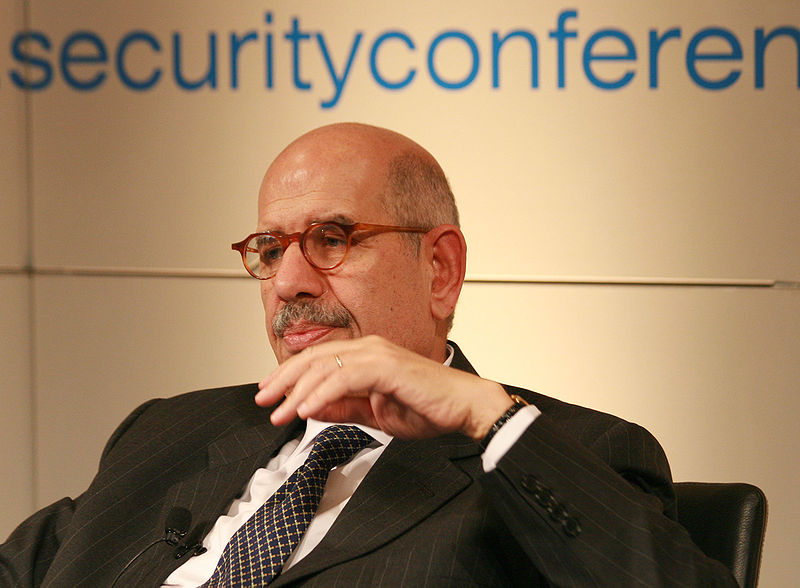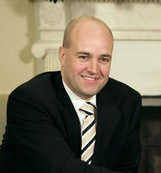 Iran is reported to have notified the IAEA Thursday evening that it rejects the P5+1 nuclear proposal. The proposal would permit transporting about 75 percent of Iran’s low enriched uranium for processing to medical isotopes before being returned to Iran for medical research purposes, leaving it with an insufficient amount of uranium to construct a bomb within the next year or so. This, in turn, would have alleviated Israeli threats of a military assault on Iran’s nuclear facilities that might have provoked a regional war. Hours before the report of the Iranian rejection was first reported in The New York Times, Israeli Prime Minister Benjamin Netanyahu cautiously endorsed the proposal. Iranian negotiators had initially agreed to the proposal last week but have, as yet, neither officially announced their latest decision nor suggested any specific reasons for their rejection. There are no indications that the final version of the proposal meaningfully differs from the initially agreed upon draft. The nations of the P5+1—the U.S., U.K., France, China, and Russia, plus Germany—have not yet announced any formal response but the United States has signaled it is unwilling to re-negotiate the proposal and Congress on Thursday authorized stricter American sanctions against Iran.
Iran is reported to have notified the IAEA Thursday evening that it rejects the P5+1 nuclear proposal. The proposal would permit transporting about 75 percent of Iran’s low enriched uranium for processing to medical isotopes before being returned to Iran for medical research purposes, leaving it with an insufficient amount of uranium to construct a bomb within the next year or so. This, in turn, would have alleviated Israeli threats of a military assault on Iran’s nuclear facilities that might have provoked a regional war. Hours before the report of the Iranian rejection was first reported in The New York Times, Israeli Prime Minister Benjamin Netanyahu cautiously endorsed the proposal. Iranian negotiators had initially agreed to the proposal last week but have, as yet, neither officially announced their latest decision nor suggested any specific reasons for their rejection. There are no indications that the final version of the proposal meaningfully differs from the initially agreed upon draft. The nations of the P5+1—the U.S., U.K., France, China, and Russia, plus Germany—have not yet announced any formal response but the United States has signaled it is unwilling to re-negotiate the proposal and Congress on Thursday authorized stricter American sanctions against Iran.
China’s ChiNext stock exchange opened on Friday and all 28 stocks more than doubled their initial public offering prices in the first hours of the morning session. The surge prompted ChiNext’s regulator to suspend trading in each of the stocks for at least 30 minutes–an attempt to limit speculation, though some analysts suggested the 28 stocks were of stable firms preselected by the Chinese government for the precise purpose of raising trader and investor confidence, so the first day’s activities offered few suggestions as to what the future might hold. The ChiNext market, which has been in development for the past ten years, intends to help finance private and public-private investment in innovative small- and medium-sized enterprises. ChiNext debuted after the U.S. Commerce Department announced Thursday that American GDP grew at an annualized rate of 3.5 percent last quarter. This sharper-than-expected rise in the American growth figures comes as the International Monetary Fund more than doubled its forecast for Asian economic growth for the balance of 2009 and through 2010. The IMF statement noted, “Just as the U.S. downturn triggered an outsized fall in Asia’s GDP because international trade and finance froze, now their normalization is generating an outsized Asian upturn.” The news comes amid meetings between senior U.S. and Chinese officials in China to resolve bilateral trade tensions. The Chinese will continue to investigate alleged American automobile dumping as it agreed to resume imports of both American pork, which had been restricted since the H1N1 virus outbreak this spring, as well as U.S. wind power generating equipment, a potentially lucrative market as China seeks to expand its capacity for harnessing renewable energy.
For more on China’s emergence from the global economic recession, see last week’s The Big Question.
 The Honduran political crisis appears to be nearing a resolution Friday as Roberto Micheletti’s interim government announced it has agreed to a deal that would include the return of ousted President Manuel Zelaya to power. “I have authorized my negotiating team to sign a deal that marks the beginning of the end of the country’s political situation,” Micheletti said in a statement late Thursday, following days of intense talks with United States envoys. “The accord allows a vote in Congress on Zelaya’s possible restitution with the prior approval of the Supreme Court . . . This is a significant concession on the part of our government,” he continued. Zelaya, who is the country’s democratically elected leader but was forced from office in June, described the agreement as a “triumph for Honduran democracy” and said he was “optimistic that my reinstatement is imminent.” Though no text of the agreement was immediately released, it appears to include provisions for the establishment of a truth commission and an end to international sanctions, and requires both sides to respect the results of November’s presidential elections. Both Micheletti and Zelaya agreed it must be approved by the Congress of Honduras before taking effect. U.S. Secretary of State Hillary Clinton, who announced the resolution from her travels in Pakistan, hailed the accord as “an historic agreement.” “I cannot think of another example of a country in Latin America that, having suffered a rupture of its democratic and constitutional order, overcame such a crisis through negotiation and dialogue,” she said in Islamabad on Friday, before heading to the Middle East and talks with Israeli and Palestinian leaders.
The Honduran political crisis appears to be nearing a resolution Friday as Roberto Micheletti’s interim government announced it has agreed to a deal that would include the return of ousted President Manuel Zelaya to power. “I have authorized my negotiating team to sign a deal that marks the beginning of the end of the country’s political situation,” Micheletti said in a statement late Thursday, following days of intense talks with United States envoys. “The accord allows a vote in Congress on Zelaya’s possible restitution with the prior approval of the Supreme Court . . . This is a significant concession on the part of our government,” he continued. Zelaya, who is the country’s democratically elected leader but was forced from office in June, described the agreement as a “triumph for Honduran democracy” and said he was “optimistic that my reinstatement is imminent.” Though no text of the agreement was immediately released, it appears to include provisions for the establishment of a truth commission and an end to international sanctions, and requires both sides to respect the results of November’s presidential elections. Both Micheletti and Zelaya agreed it must be approved by the Congress of Honduras before taking effect. U.S. Secretary of State Hillary Clinton, who announced the resolution from her travels in Pakistan, hailed the accord as “an historic agreement.” “I cannot think of another example of a country in Latin America that, having suffered a rupture of its democratic and constitutional order, overcame such a crisis through negotiation and dialogue,” she said in Islamabad on Friday, before heading to the Middle East and talks with Israeli and Palestinian leaders.
The United States signed a pact with Colombia increasing U.S. access to seven Colombian military bases over the next 10 years, prompting Venezuelan president Hugo Chavez to say that the agreement sets the stage for a U.S.-led invasion of his country. The deal places a ceiling of 800 U.S. military personnel and 600 contractors to be based inside Colombia. These limits were approved by the U.S. Congress and will be part of American efforts to fight the drug trade in Colombia, one of the world’s biggest cocaine producers. While an official from the U.S. Department of Defense noted that there would be no “U.S. offensive capacity” at any of the Colombian bases, Chavez seized on the agreement as an opportunity to attack U.S. foreign policy, charging it is destabilizing the region. The Venezuelan president also announced the arrest of two Colombians and one Venezuelan on charges of spying, and accused Washington of backing them. “We have captured officials from the DAS Colombian intelligence spying in Venezuela. They are jailed and we are going to put them on trial,” Chavez said. “Who is behind this? The hand of the United States.”
 The European Union agreed in principle to creating a $74 billion annual aid fund to help developing nations adapt to climate change, but left it unclear as to exactly how much the EU would actually pay. The agreement comes two months before global climate talks in Copenhagen. Swedish prime minister Fredrik Reinfeldt said the EU now has a “very strong negotiating position” to seek greenhouse gas emissions cuts, and British prime minister Gordon Brown praised the deal, saying “real progress” had been made to help developing countries and that Europeans are “ready to contribute their fair share of the costs.” The Kyoto Protocol, the UN anti-climate change agreement, expires in 2012, and the EU’s two-day summit was an attempt to forge a negotiating mandate prior to the Copenhagen talks. But perhaps the most difficult issue, who exactly will pay into the fund, is still a matter of discussion. As of now, EU nations would not be required to contribute before 2013, which was a demand by nine poorer EU member states that are hurting due to the global financial crisis. It also leaves the EU without a firm figure that might be used to persuade the United States and China to participate in the fund.
The European Union agreed in principle to creating a $74 billion annual aid fund to help developing nations adapt to climate change, but left it unclear as to exactly how much the EU would actually pay. The agreement comes two months before global climate talks in Copenhagen. Swedish prime minister Fredrik Reinfeldt said the EU now has a “very strong negotiating position” to seek greenhouse gas emissions cuts, and British prime minister Gordon Brown praised the deal, saying “real progress” had been made to help developing countries and that Europeans are “ready to contribute their fair share of the costs.” The Kyoto Protocol, the UN anti-climate change agreement, expires in 2012, and the EU’s two-day summit was an attempt to forge a negotiating mandate prior to the Copenhagen talks. But perhaps the most difficult issue, who exactly will pay into the fund, is still a matter of discussion. As of now, EU nations would not be required to contribute before 2013, which was a demand by nine poorer EU member states that are hurting due to the global financial crisis. It also leaves the EU without a firm figure that might be used to persuade the United States and China to participate in the fund.